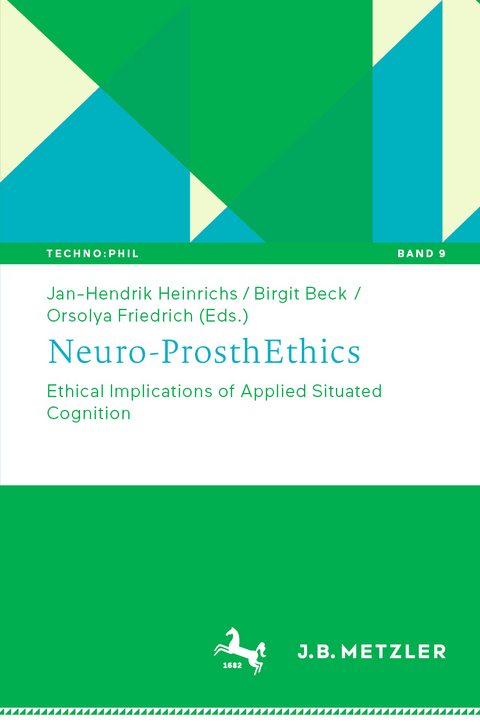Neuro-ProsthEthics
Springer Berlin (Verlag)
978-3-662-68361-3 (ISBN)
- Lieferbar (Termin unbekannt)
- Versandkostenfrei
- Auch auf Rechnung
- Artikel merken
The volume focusses on the ethical dimensions of the technological scaffold embedding human thought and action, which has been brought to attention of the cognitive sciences by situated cognition theories. There is a broad spectrum of technologies co-realising or enabling and enhancing human cognition and action, which vary in the degree of bodily integration, interactivity, adaptation processes, of reliance and indispensability etc. This technological scaffold of human cognition and action evolves rapidly. Some changes are continuous, some are eruptive. Technologies that use machine learning e.g. could represent a qualitative leap in the technological scaffolding of human cognition and actions. The ethical consequences of applying situated cognition theories to practical cases had yet to find adequate attention and are elucidated in this volume.
lt;b>PD Dr. Jan-Hendrik Heinrichs works as a research scientist in the working group neuroethics and ethics of AI in the Institute für Neuroscience and Medicine 7: Brain and Behaviour of Forschungszentrum Jülich and teaches at RWTH Aachen.
Birgit Beck is professor for Ethics and Philosophy of Technology at the Institute of History and Philosophy of Science, Technology, and Literature at Technische Universität Berlin. Her research and teaching interests include ethics and philosophy of technology, bioethics, animal ethics and food ethics.
Orsolya Friedrich is Professor of Philosophy of Medicine and Technology at the Institute of Philosophy at the FernUniversität in Hagen, where she leads an Emmy Noether research group that investigates the characteristics and consequences of novel interactions between humans and machines from a philosophical perspective.
Introduction.- he Ethics of the Extended Mind: Mental Privacy, Manipulation and Agency.- Neuroprosthetics, Extended Cognition, and the Problem of Ownership.- Narrows, detours, and dead ends - How cognitive scaffolds can constrain the mind.- Being in the world: Extended minds and extended bodies.- Culpability, control, and brain-computer interfaces.- Debunking cognition. Why AI moral enhancement should focus on identity.- Tracing responsibility and neuroprosthesis-mediated speech.- Who is to blame? Extended physicians and the responsibility gap.- Situated and ethically sensitive interviewing: critical phenomenology in the context of neurotechnology.
| Erscheinungsdatum | 07.05.2024 |
|---|---|
| Reihe/Serie | Techno:Phil – Aktuelle Herausforderungen der Technikphilosophie |
| Zusatzinfo | V, 193 p. 3 illus., 1 illus. in color. |
| Verlagsort | Berlin |
| Sprache | englisch |
| Maße | 155 x 235 mm |
| Themenwelt | Geisteswissenschaften ► Philosophie |
| Technik | |
| Schlagworte | Active Externalism • Autonomous Extenders • Autonomy • Enhancement • Extended Mind • implants • machine learning • Neuroethics • Prostheses • Responsibility |
| ISBN-10 | 3-662-68361-X / 366268361X |
| ISBN-13 | 978-3-662-68361-3 / 9783662683613 |
| Zustand | Neuware |
| Informationen gemäß Produktsicherheitsverordnung (GPSR) | |
| Haben Sie eine Frage zum Produkt? |
aus dem Bereich




